AITA for walking out on my job?
She had always been the reliable one—the steadfast presence in a whirlwind of chaos, never missing a beat or shirking a responsibility. Her spotless record was a testament to her dedication, a silent promise she made to herself and her workplace.
But when a sudden, life-threatening infection swept her away to the ICU, the unthinkable happened: her perfect streak was shattered, not by negligence, but by sheer circumstance beyond her control.
Returning to work, fragile yet determined, she faced an unexpected storm of judgment and punishment. The cold, unyielding point system that once seemed fair now felt like a cruel sentence, dismissing her ordeal and humanity in a blink.
The weight of lost bonuses, discounts, and probation felt less like policy enforcement and more like a betrayal, leaving her stunned and questioning where compa*sion had gone in a place she called her second home.

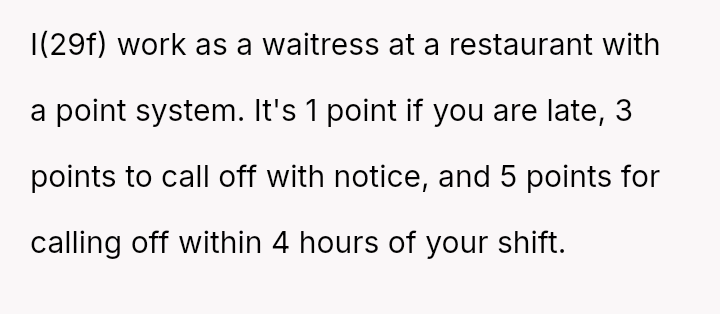
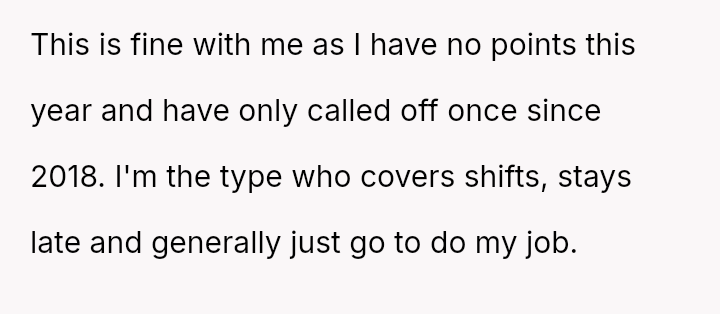
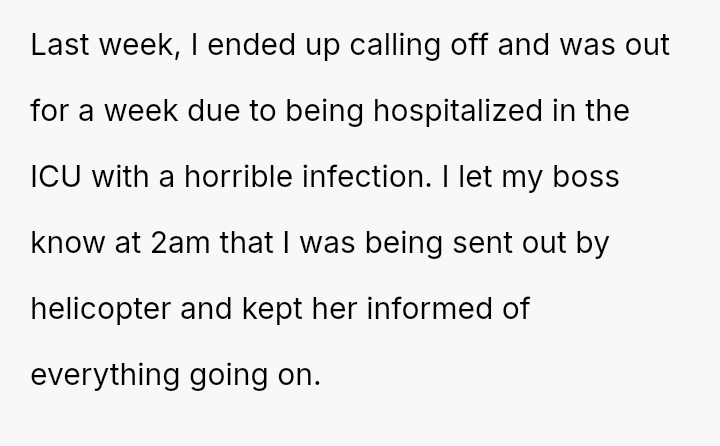
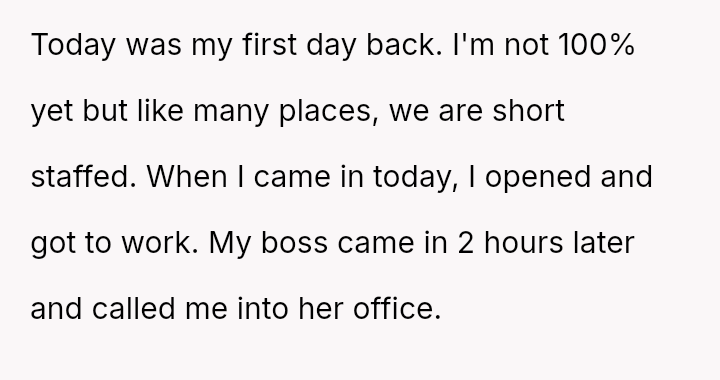
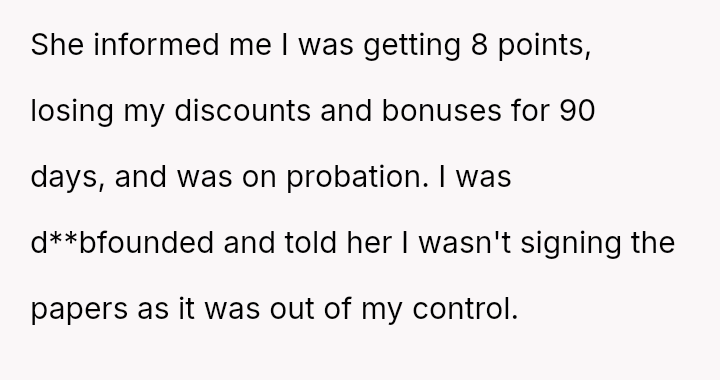

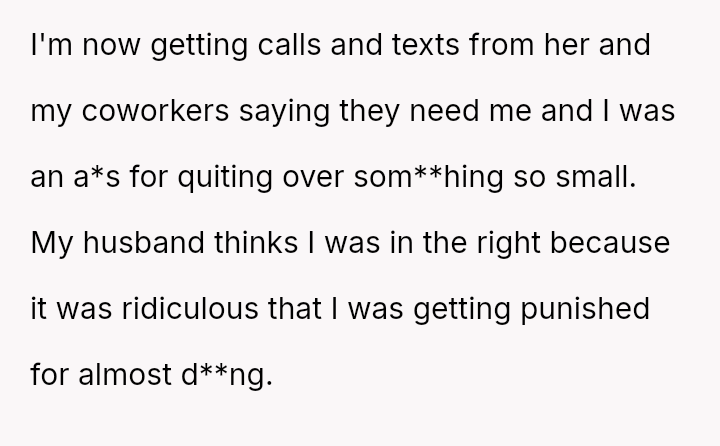

Subscribe to our Newsletter
Get the latest stories delivered to your inbox.
The original poster (OP) faced a severe conflict between adhering to strict workplace attendance policies and managing a life-threatening health crisis.
Her commitment to her job, demonstrated by her excellent prior record, was seemingly disregarded when she incurred points and penalties for a hospitalization that was entirely beyond her control.
This action by management resulted in the OP choosing to resign rather than accept unreasonable punishment.
Was the employer justified in applying the es**blished points system strictly, even for a hospitalization, or did the exceptional nature of the emergency warrant reasonable accommodation?
Should the OP have signed the disciplinary papers to protect her employment, or was quitting the only ethical response to such an unfair penalty?
Internet Users Didn’t Hold Back:
The community had thoughts — lots of them. From tough love to thoughtful advice, the comment section didn’t disappoint.